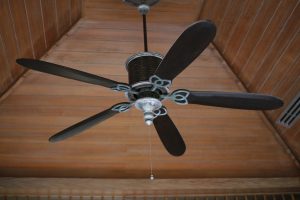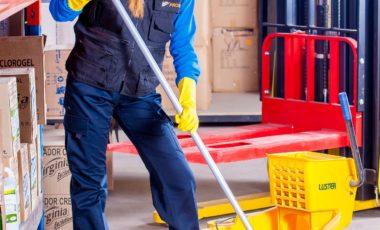
Products Liability: Major Recall of Ceiling Fans Sold in Home Depot Stores
Just prior to the New Year, King of Fans, a major ceiling fan manufacturer, issued a nationwide recall of ceiling fans. More than four injuries were reported as well as multiple incidences of product malfunction and damage. Ceiling fans blades are spinning off of the rotor and can cause severe injuries, even death. The defective products were sold from April to October 2020 in Home Depot locations nationwide, including locations in Utah, Wyoming, and Idaho. The U.S. Consumer Product Safety Commission asks consumers to report defective products immediately. The recalled fans are made in four finishes — black, matte, polished nickel, and matte white. If you think you have purchased a defective item, stop usage immediately and contact the CPSC for next steps. If you were injured or suffered injuries from a defective product, you may have a claim for damages.
What is Products Liability?
Products liability is legal terminology for a manufacturer’s liability to the consumer. Under the Uniform Commercial Code, or UCC, the consumer is entitled to rely on several implied warranties. These warranties include the warranty of merchantability and the warranty of fitness for a specific purpose. In addition, if the seller or merchant makes an express warranty, the consumer can rely on that express warranty as well if the product does not conform. Defective products pose a danger to consumers and can cause bodily injury or even death. Products liability suits also encompass defective medical devices and medications that cause birth defects, major side effects, or untimely death. There is no federal law or statute; products liability is governed by state law and the statute of limitation to file an action can differ based on jurisdiction. Sometimes the doctrine of strict liability can be invoked. Strict liability allows the consumer to recover from the manufacturer without establishing negligence.
The most difficult challenge with defective product claims is determining which entity is liable. In some cases, only the manufacturer is liable, but in others, the wholesaler, distributor, merchant and even the common carrier can all be liable to the consumer for damages. This is dependent on the facts of the case and whether a merchant or distributor has a duty to inspect the item upon delivery, or if the seller made any express warranties or guarantees to the consumer prior to purchase. If a product left the manufacturer in good condition and was damaged or tampered with at the retailer’s warehouse, and this can be proven, it is possible only the retailer is liable. Often in these cases parties in the supply chain file crossclaims against other defendants. A crossclaim is a countersuit against another defendant.
Contact the Attorneys at Rocky Mountain Personal Injury Center
If you or a loved one have suffered injuries due to a defective product, you may have legal options. Even property damage constitutes legal damages, but products liability claims are complicated. If you were injured, do not destroy or get rid of the item. Also keep any receipts or warranty cards you may have obtained, and take photos of property damages or injuries sustained for evidence purposes. Our attorneys at Rocky Mountain Personal Injury Center only work with plaintiffs and are seasoned in products liability claims. Contact our office in Logan, Utah to schedule a consultation.




